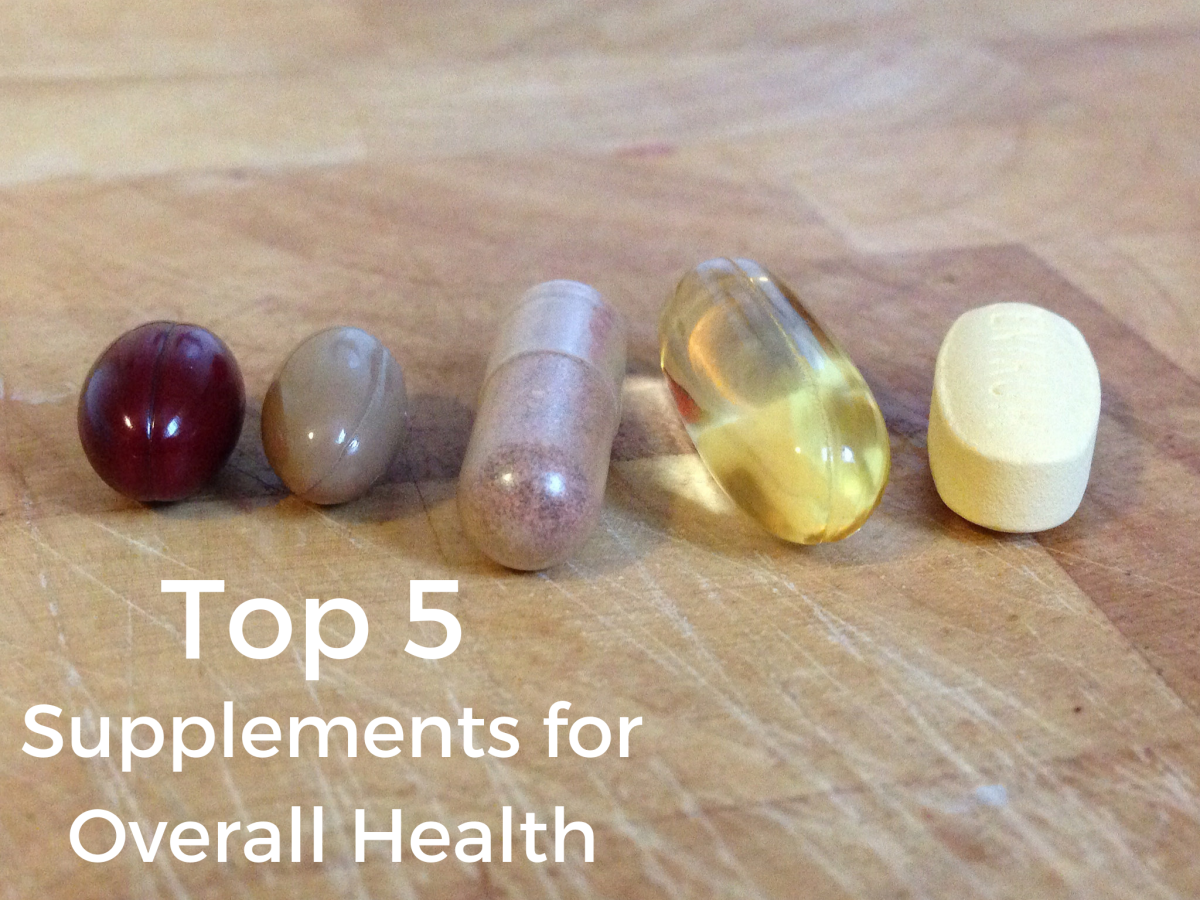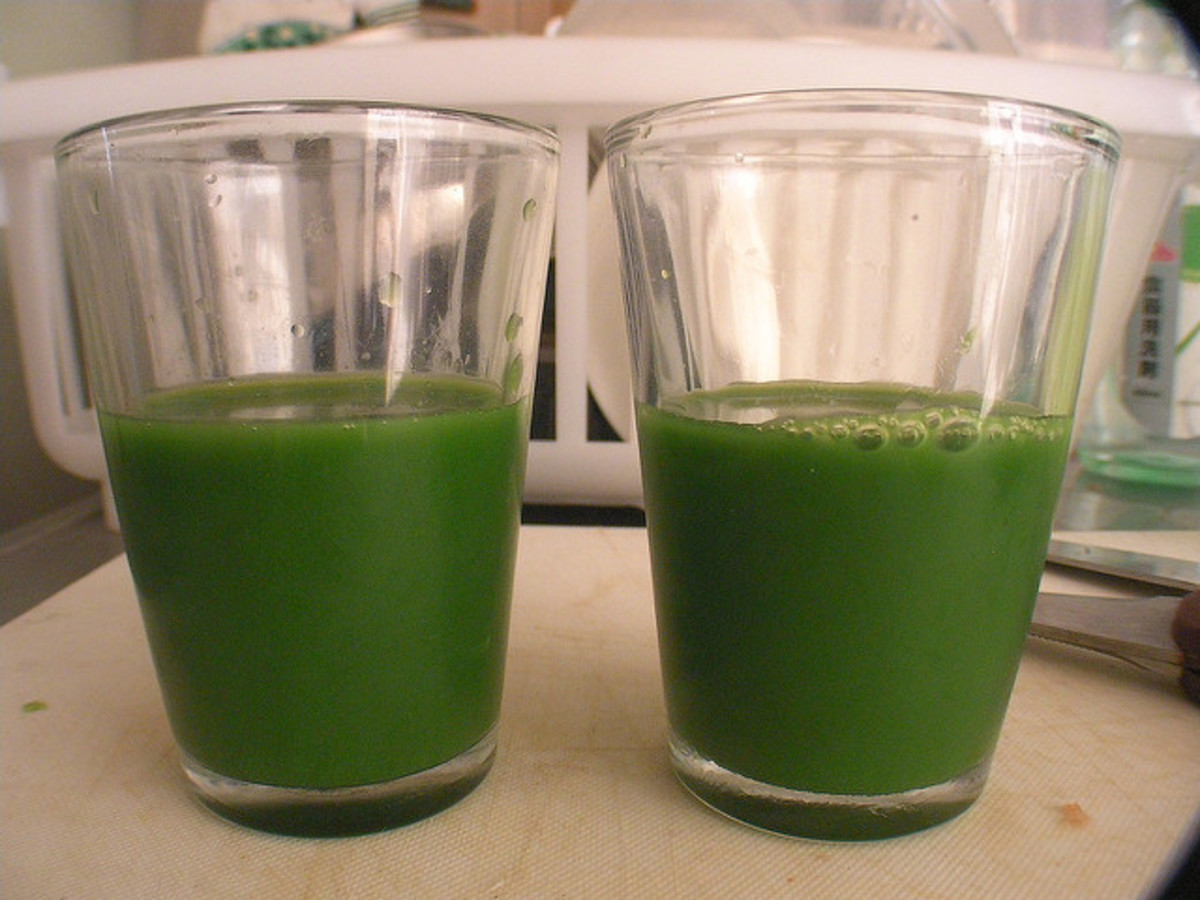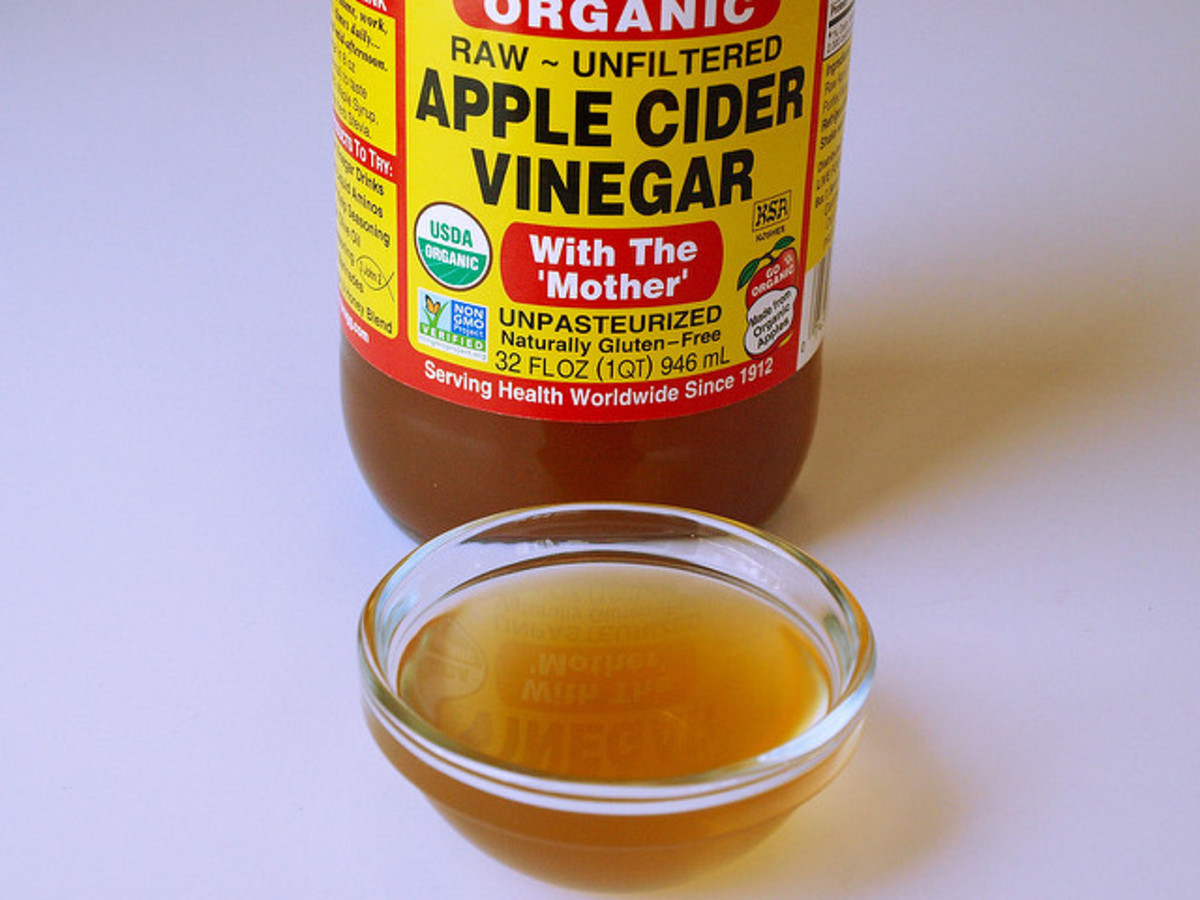So many supplements, so little time!
Which supplements should have priority?
General Comments
In recent years, a huge variety of food supplements have become available which weren’t available even twenty years ago. Many of them are useful for almost anyone; many others are useful primarily in particular circumstances; and a few are of very little real use at all. Since very few people have either an unlimited budget or the time and/or desire to take what could end up as a couple of dozen tablets (or more) per day, the question arises of which of the potentially huge list are most important. In other words, it’s a matter of assigning priorities.
It all depends
A rather vague statement, but it does. The priority to be assigned to a particular supplement depends on many factors, including age and whatever medical problems need to be addressed.
(I ought to say at the outset that any reference to specific medical conditions is purely a matter of personal opinion and experience and that the final decision should be made under the care of a professional.)
To take a particular example to illustrate the point: Glucosamine sulphate is a supplement of very low priority (in fact, it probably isn’t necessary at all) for a healthy, fit 20-year-old. For a 60-year-old with chronic osteoarthritis, glucosamine sulphate becomes of very high priority indeed - in fact, it’s close to essential.
To make it possible at all to write this Hub, therefore, I am going to have to consider a typical situation; perhaps someone of average health in his or her early 30s, with no specific long-term medical problems. I will also say at the outset that the priority list is my own opinion, although many professional nutritionists will agree with me to at least some extent.
Quality issues
All other things being equal, it’s probably better to take a limited number of high-quality supplements of useful strength than a huge pile of low-quality, understrength junk pills. In many cases, taking not enough of some particular item is almost as bad as not taking it at all. In some other cases, the really low quality versions may well harm rather than help; for example, iron in the form of ferrous sulphate is very poorly absorbed and often causes gastrointestinal problems.
Unfortunately, in some cases the useful strength levels can have another problem; the “horse pill” problem. Some supplements are needed in large enough physical amounts that the tablets can get uncomfortably large. Also unfortunately, there are very few solutions to this problem; one possible solution is to crush tablets and/or remove the contents of capsules. A problem with this solution can be that many supplements taste rather unpleasant. Maybe just wash them down with lots of water?
Right – enough preamble!


Vitamin C

The Nutrient Groups
The Basic List
This list includes such items as a multivitamin, vitamin C, and fish oil.
Multivitamin
In most cases, this one item is the most important on the list. In fact, the best of these are multivitamin/multiminerals; but that’s rather a mouthful, so I’ll use the short version. It has been said that supplements, in particular vitamin supplements, are unnecessary for someone eating a “balanced diet”. I, along with most professional nutritionists, disagree.
While it is true that if you grew all your own vegetables organically in rich soil, harvesting them five minutes before use, raised your own chickens for meat and eggs, and so on you wouldn’t need supplements – in practise, most people have other things to do with their time. And, unfortunately, in many places the soil is nutrient-depleted for various reasons and that particularly applies to minerals. Obviously, any vegetables grown on mineral-depleted soil will be mineral-depleted.
Another issue is that need for various vitamins, particularly B vitamins and vitamin C, is increased by a high-stress lifestyle.
For these and many other reasons, in my opinion a good multivitamin is of first priority. If you’re going to take nothing else, at least take this. Whether a multivitamin is good or not depends on the range of nutrients, the way in which the minerals are presented (chelated is best) and the strength.
Vitamin C
There is a great deal of controversy about the appropriate amount of vitamin C to take as a supplement. Recommendations vary from the official requirement figure (100mg per day from all sources) to Linus Pauling’s ten grams or more – a hundred-fold difference. It also ought to be noted that vitamin C is always included in multiple formulations, so that needs to be taken into account. As well as all that, requirement for vitamin C varies greatly according to circumstances; for example, someone healing from severe trauma or major surgery needs a lot more than someone who is already healthy.
My opinion is that vitamin C is #2 on the list, at a rate of 1000mg per day. Take it at the opposite end of the day from your multiple; vitamin C doesn’t stay in the body long, so you’ll get the best use out of it that way.
Omega-3 Oils
Omega-3 and omega-6 oils are both essential for health, to prevent unwanted blood clotting and also for the health of all cell walls particularly in the nervous system. In practice, however, it’s far more likely that you will be taking in too much omega-6; it’s found in vegetable oils, just about all nuts, margarines and so on. Therefore, omega-3 oils are the ones that need attention. Furthermore, omega-3 oils aren’t all the same. Although the body can make use of the ALA (alpha-linolenic acid) found in linseed/flaxseed and also in walnuts, the conversion to what the body actually needs is slow, inefficient and needs many nutrients that might be in short supply.
What the body actually needs for health is the two fatty acids DHA and EPA, short for docosahexaenoic acid and eicosapentaenoic acid respectively. The best source of these, by a very long way, is marine oils; cod liver oil to some extent, but even better oil from the flesh of oily fish and krill oil.
Therefore, fish or krill oil is #3 on the list. Unless, that is, you regularly eat oily fish such as sardines, mackerel, herring or tuna in which case you don’t need pills. Dose: at least 1000mg per day of the typical supplement with 30% DHA/EPA.
Vitamin E
Vitamin E is used by the body mainly as an antioxidant, particularly for the fatty parts of tissue such as cell walls. It is also essential for reproductive health, but you would have to be very short indeed of vitamin E for this to start becoming a problem. Vitamin E is often found in multiples, and the better ones contain an amount that is probably adequate in most circumstances; however, it’s worth mentioning that as vitamin E is fat-soluble it needs to be taken with a meal containing fat, for best effect. Vitamin E is often found in oil supplements, but the amount there is only sufficient to preserve the supplement itself.
Vitamin E is #4 on the list, at 200-400 i.u. (international units) per day. Make sure your supplement is the natural variety, d-alpha tocopherol, and take it at the opposite end of the day from your multi.
The Conditionally Essential List
Calcium and Magnesium
Calcium and magnesium are needed in very large quantities, much greater than the requirement for any other mineral except sodium – and too much sodium is far more likely than too little, at least in Western diets. Also, they need to be in balance and a third mineral, boron, which isn’t too well known, is also needed for the body to make use of calcium and magnesium.
The requirement for calcium and magnesium is so large (about 1500mg per day of the two together) that it is extremely unlikely that your multivitamin will contain enough. As well as all these problems with calcium and magnesium, there is one more; women during and after the menopause need far more than men or women before that time. If you are a woman who is either going through or has gone through the menopause, then a calcium/magnesium combination at the rate of 1000mg/500mg per day (preferably with 3mg/day of boron included) is #5 on the list.
Digestive Enzymes
Digestive enzymes are just that. A young, healthy digestive system produces plenty of digestive enzymes, but someone who is either ill for other reasons or older (a reasonable rule of thumb is 40+) tends not to do so. The problem is greatest with stomach acid production, and once again women during and past the menopause get the worst of it. If you are a man over 45 or a woman who is either going through or has gone through the menopause, then a good digestive enzyme supplement containing betaine HCl is #6 on the list. It is probably not necessary to take digestive enzymes with a small meal; for most people in the 21st century, this would include breakfast and possibly lunch.
Water-Soluble Antioxidants
In my view, this supplement is important for everyone; but which one is less important, so that’s why it’s in this section. There is a huge list of antioxidant nutrients, variously called polyphenols and OPCs (oligomeric proanthocyanidins – I promise not to say that again!) which are for the most part interchangeable although there are minor differences. These nutrients are also the colouring matter in deep red to purple, even black, foods such as blackberries, blackcurrants, red grapes, beetroot and so on. These nutrients are extremely powerful antioxidants (protecting against all manner of degenerative problems) and also make vitamin C more useful, so some supplement or other containing these substances is #7 on the list. The importance of these grows with increasing age.
Carotenoids
Carotenoids are fat-soluble pigments which give foods containing them a colour varying from deep yellow to red, depending on which particular carotenoid it is and also concentration. They are structurally similar to beta-carotene, the plant form of vitamin A, but none of them except beta-carotene has any vitamin A activity. They are, however, powerful antioxidants working specifically on fatty parts of the body such as cell membranes. Food sources include tomatoes, carrots, peppers, some melons, pumpkins and sweet potatoes. Lycopene, found particularly in tomatoes, is very important for the health of the prostate gland for some reason.
A supplement of some mixture of carotenoids is #8 on the list, and particularly important for men over perhaps 50. It is particularly important to take them with a meal containing some form of fat.
Coenzyme Q10
Coenzyme Q10 is not a vitamin. That is probably because it’s too important; coenzyme Q10 is vital for the release of energy from food by combining it with oxygen, in humans. (Other living things use similar compounds varying from Q6 to Q9; the number refers to the length of a side-chain in the molecule. Mammals use either Q10 or Q9.)
Although coenzyme Q10, often called CoQ10, can be made in the body its production is often not quite high enough and in such cases a supplement is useful. As is often the case, the likelihood of this gets greater with increasing age. CoQ10 is particularly important for tissues using a lot of oxygen, so it is important for heart health and athletic performance.
One particular point about CoQ10 is that a commonly used type of drug, statins, at least partially blocks its production in the body. This can lead to all manner of problems. Therefore, CoQ10 is #9 on the list at the rate of 30-100mg per day; but if you are taking statins, it is #1. And it needs to be taken in quantities of at least 100mg per day in that case, as well.
Except in the case of statin users, the need for Coenzyme Q10 probably starts at around the age of 45.
Coenzyme Q10 is much better absorbed if taken with fatty food; ideally, the Coenzyme Q10 should also be dissolved in oil inside the capsule.
Useful in Some Circumstances
Glucosamine Sulphate
Glucosamine sulphate is used primarily to help with joint problems, whether potential or actual. Glucosamine and similar compounds are used by the body as raw material for all manner of structures. Included in this are the lining of the gastrointestinal tract and also the various structures; cartilage and the synovial fluid lubricating the joints, also the gel that fills the intervertebral discs allowing for a strong yet flexible structure in the spine.
The body makes its own glucosamine, but as usual for most body processes this gets less efficient as one gets older. At some point, usually around age 40, production usually becomes inadequate and that is when such problems as osteoarthritis start. Glucosamine as a supplement is thus conditionally essential; for a 20-year-old it’s probably completely unnecessary, for someone of 50+ trying to prevent joint problems it’s probably #10 on the list. If you already have such problems, it is a long way further up the list, perhaps #2 or #3.
Probiotics
Probiotics are a rather unusual class of supplement, in that they actually consist of living organisms; in fact, they are cultures of bacteria similar to those that usually live in a healthy digestive system. Taking a probiotic regularly can help prevent digestive upsets and help digestion; taking large amounts can help get rid of such problems. Ideally, probiotics should be kept refrigerated or at least in a cool place, and taken away from food with a cold drink. (Stomach acid and high temperatures both kill the “friendly bugs” in such supplements.) They are #11 on the list, unless you have a problem for which they are appropriate in which case they are a lot further up the list.
Single Nutrients and Herbals
Finally; there are innumerable vitamins, minerals and assorted nutrients and herbals that can be useful in specific circumstances. As an example, chromium can be useful for someone whose blood sugar control is poor. If you have a need for some specific single nutrient for a particular health problem, then it becomes essential; where on the list it might come is highly variable.
Glucosamine Sulphate

Warnings and Comments
If you are not already taking a supplement and you are taking medication or have a specific health problem, then starting to take any health supplement (particularly a high-strength one) should be done under the advice of a professional; many supplements interact and/or interfere with various drugs and medical problems. And all supplements should be kept away from children and (to a lesser extent) pets.
The precise order I have set out here is a matter of opinion, and the order of priority also changes according to age, pre-existing health problems, gender and general lifestyle including exercise levels, work stress and diet. However, I think this is a useful start. If you want further help; a very few doctors have taken the time to educate themselves in the therapeutic use of supplements, there are professional therapeutic nutritionists (although they are few, far between and tend to be expensive) and, lastly, some of the owners of “health food shops” (often a misnomer, as the lion’s share of their sales are of supplements) are quite knowledgeable. In my humble opinion, expecting good advice from the staff of a health supplements chain store (mentioning no company names as I don’t wish to be sued) is rather... over-optimistic.
You may also be able to get a limited amount of advice from the technical departments of some of the smaller supplement companies. If nothing else, they may be able to point you in the direction of a nutritional practitioner.








